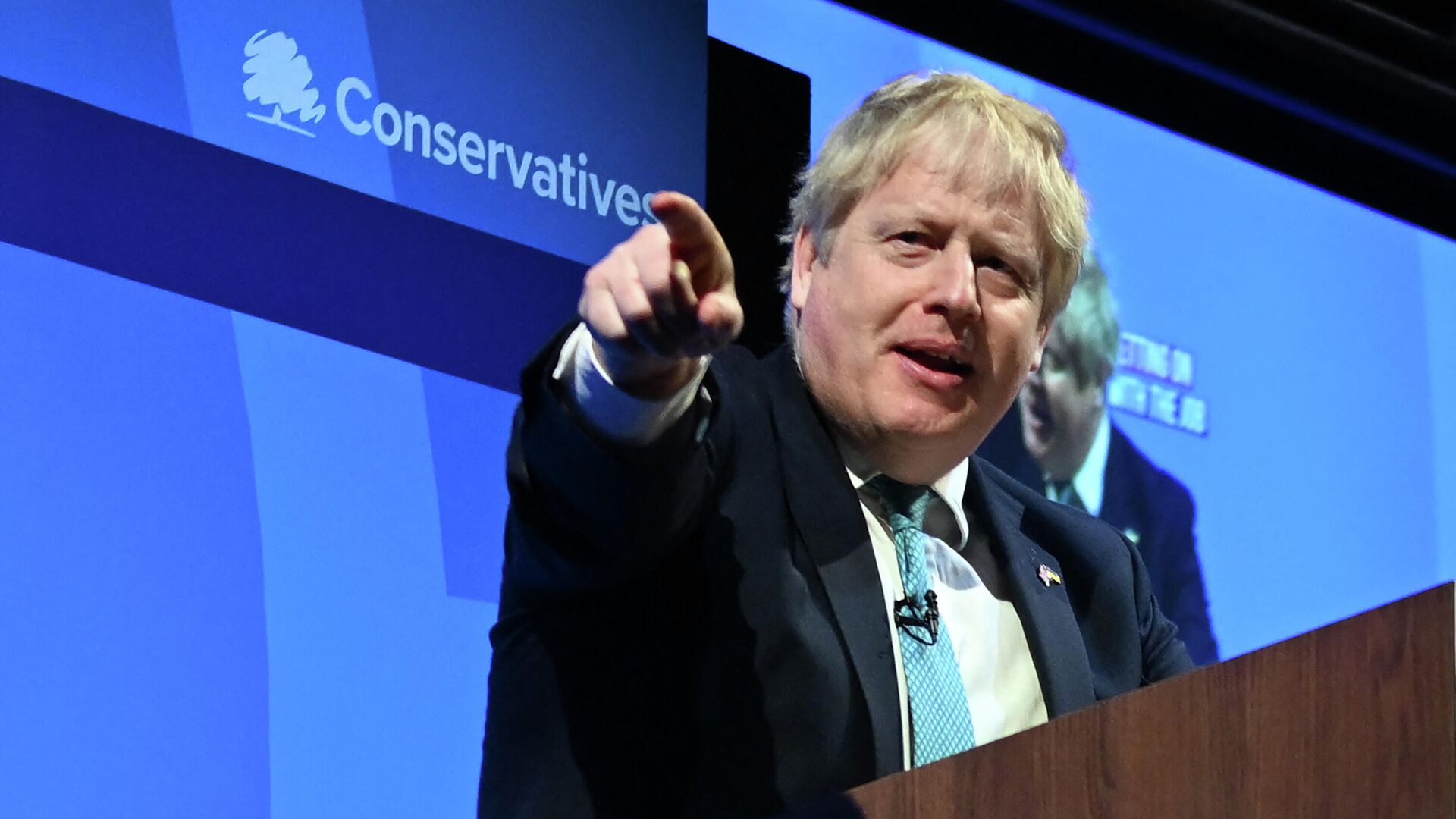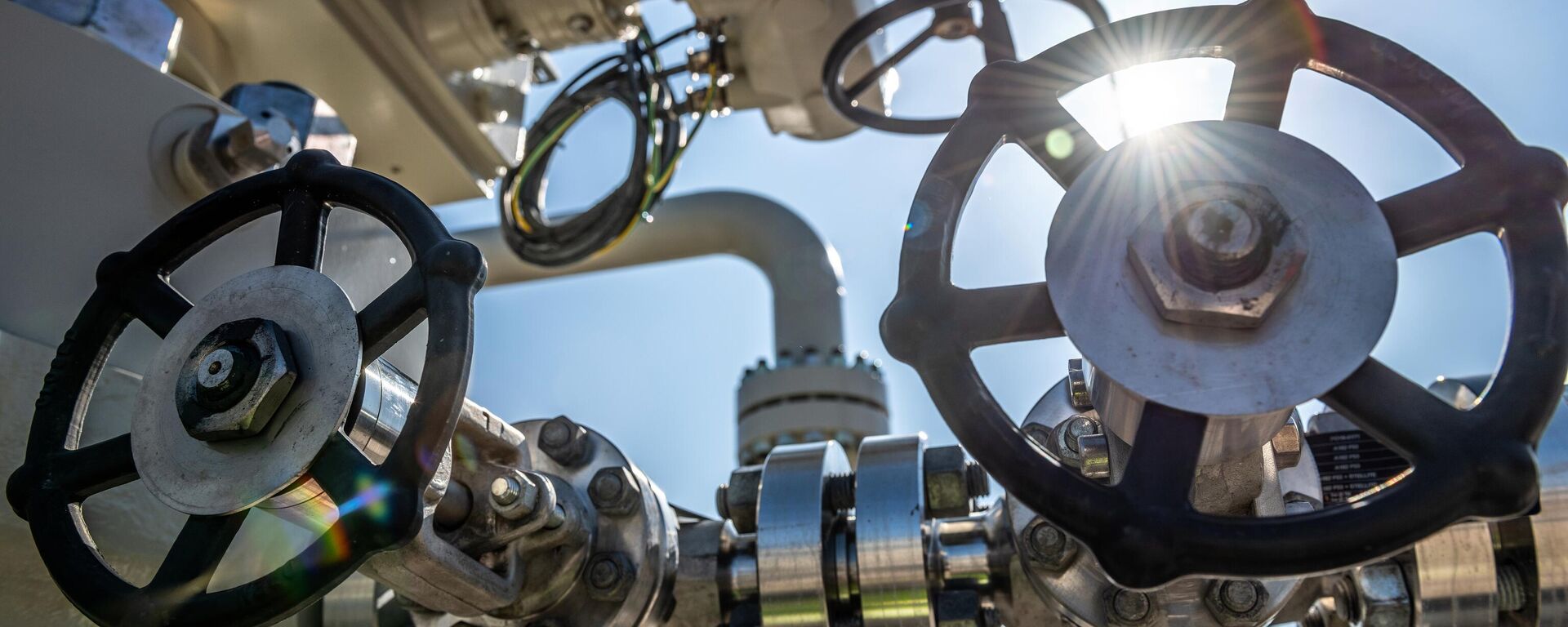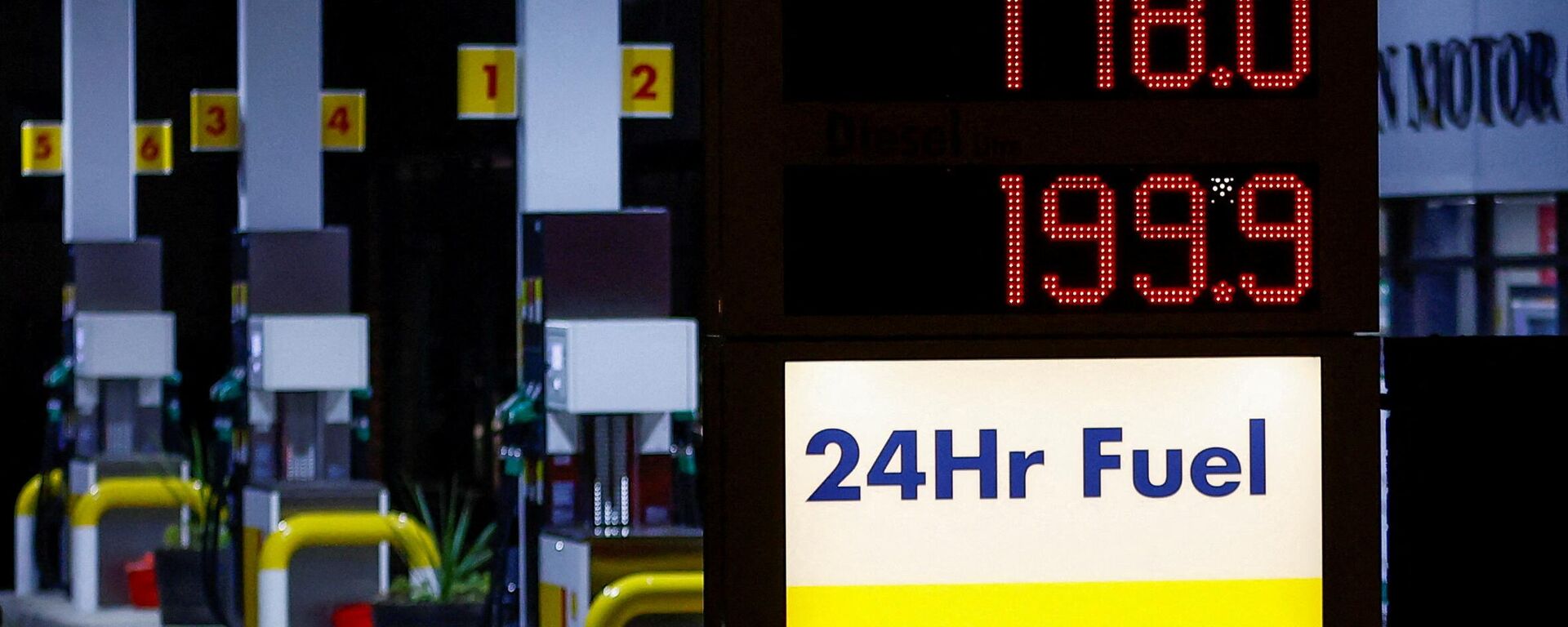https://sputnikglobe.com/20220414/how-bojos-economic-policy-anti-russia-sanctions--ukraine-bravado-accelerate-uk-inflation-crisis-1094767350.html
How BoJo's Economic Policy, Anti-Russia Sanctions & Ukraine Bravado Accelerate UK Inflation Crisis
How BoJo's Economic Policy, Anti-Russia Sanctions & Ukraine Bravado Accelerate UK Inflation Crisis
Sputnik International
UK consumer price inflation soared to 7.0% in March from 6.2% in February, its highest since March 1992, according the Office for National Statistics (ONS)... 14.04.2022, Sputnik International
2022-04-14T18:05+0000
2022-04-14T18:05+0000
2023-05-28T15:18+0000
ukraine
boris johnson
rishi sunak
recession
interest rates
special operation
russia
sanctions
inflation
sputnik explains
https://cdn1.img.sputnikglobe.com/img/07e6/03/14/1094022425_0:0:3000:1688_1920x0_80_0_0_1d30b40d3e915d04c41201fa7b1786b9.jpg
"UK inflation is now at 7.0% and set to rise at least a little further before there is any chance of it falling back," says Kevin Dowd, professor of finance and economics at Durham University. "It is already having a big impact on UK living standards and is now the number one UK economic policy issue."To keep inflation low and stable, the UK government normally sets an inflation target of 2%. The Bank of England (BOE) informed the government in March 2022 that twelve-month Consumer Price Index (CPI) inflation was 5.5% in January 2021, being largely caused by the uneven economic effects of COVID-19 on supply and demand.In the February 2022 Report, CPI inflation was expected to peak at around 7¼% in April, as Andrew Bailey, governor of the Bank of England, wrote to Treasury chief Rishi Sunak on 17 March. However, galloping inflation has surpassed Bailey's estimates. According to Goldman Sachs, inflation could mount as high as 9.2% in April.The soaring price of fuel, energy and groceries are named as the major drivers of this trend. Average petrol prices soared to 160.2 pence ($2.12) per litre in March 2022, compared with 123.7p ($1.64) per litre a year earlier.Anti-Russia SanctionsThe EU and the UK's sweeping sanctions on Russia's financial, logistics and energy sectors have exacerbated the situation even further, sending fuel prices higher and further disrupting supply chains. Nevertheless, the Boris Johnson government announced in the beginning of March that the UK would phase out imports of Russian oil and oil products by the end of 2022. Currently, London is pressuring EU member states into joining the embargo.Citing Steffan Ball, chief UK economist at Goldman Sachs Group Inc., Bloomberg predicted on 13 April that sanctions against Russia "will hurt Europe’s economy more". In addition to that, the impact of rising prices on Britons' spending power is likely to be "more stark" because of the way energy bills are regulated in the country, according to Ball.Earlier this year, the UK industry regulator, Office of Gas and Electricity Markets (Ofgem), lifted its cap on gas bills to 1,971 pounds ($2,670) per year in response to the spike in the price of the commodity. This cap limits what suppliers can charge customers. As a result, UK domestic energy bills are expected to jump 54% from April, forcing the poorest households to choose between “eating and heating” later this year, according to Bloomberg.BOE's Interest Rate Hikes Threaten a RecessionThe Bank of England has raised interest rates three times in a row since December 2021 from 0.1% to 0.75%. The Monetary Policy Committee may increase the UK's interest rate to 1% at its next meeting on 5 May, according to the Evening Standard.To complicate matters further, the Boris Johnson government is unpopular, mainly because both the key leaders Sunak at the Treasury and BoJo at No 10 "are in political trouble albeit for different reasons," according to the economist."Johnson long ago lost control of Government spending and Sunak was left with the task of accommodating that excess without raising taxes - an impossible task," notes Atkinson. "Now is added the costs of thousands of asylum seekers and the military support of Ukraine. How much the public are prepared to pay the costs of these is an open question but mass immigration is extremely unpopular and there is probably nowhere near the support for the Ukraine adventure that the government thinks."
https://sputnikglobe.com/20220306/gas-prices-why-eu-and-uk-sanctions-game-will-see-no-winners-1093621488.html
https://sputnikglobe.com/20220413/self-inflicted-uk-inflation-hits-7-thanks-to-sanctions-on-russia-1094727394.html
ukraine
russia
united kingdom (uk)
Sputnik International
feedback@sputniknews.com
+74956456601
MIA „Rosiya Segodnya“
2022
News
en_EN
Sputnik International
feedback@sputniknews.com
+74956456601
MIA „Rosiya Segodnya“
Sputnik International
feedback@sputniknews.com
+74956456601
MIA „Rosiya Segodnya“
ukraine, boris johnson, rishi sunak, recession, interest rates, special operation, russia, sanctions, inflation, sputnik explains, united kingdom (uk)
ukraine, boris johnson, rishi sunak, recession, interest rates, special operation, russia, sanctions, inflation, sputnik explains, united kingdom (uk)
How BoJo's Economic Policy, Anti-Russia Sanctions & Ukraine Bravado Accelerate UK Inflation Crisis
18:05 GMT 14.04.2022 (Updated: 15:18 GMT 28.05.2023) UK consumer price inflation soared to 7.0% in March from 6.2% in February, its highest since March 1992, according the Office for National Statistics (ONS). According to Goldman Sachs, inflation will hit the real incomes of Britons harder than people living in continental Europe.
"UK inflation is now at 7.0% and set to rise at least a little further before there is any chance of it falling back," says Kevin Dowd, professor of finance and economics at Durham University. "It is already having a big impact on UK living standards and is now the number one UK economic policy issue."
To keep inflation low and stable, the UK government normally sets an inflation target of 2%. The Bank of England (BOE) informed the government in March 2022 that twelve-month Consumer Price Index (CPI) inflation was 5.5% in January 2021, being largely caused by the uneven economic effects of COVID-19 on supply and demand.
In the February 2022 Report, CPI inflation was expected to peak at around 7¼% in April, as Andrew Bailey, governor of the Bank of England,
wrote to Treasury chief Rishi Sunak on 17 March. However, galloping inflation has surpassed Bailey's estimates. According to Goldman Sachs, inflation could mount as high as 9.2% in April.
The soaring price of fuel, energy and groceries are named as the major drivers of this trend. Average petrol prices soared to 160.2 pence ($2.12) per litre in March 2022, compared with 123.7p ($1.64) per litre a year earlier.
"Observers point to soaring energy prices and pandemic supply chain issues, but these are only part of the picture," says Dowd. "The primary underlying cause is excessive growth of the money supply, and it has been obvious to those of us who have been looking at UK money supply numbers that a serious inflation problem was coming. This has been clear for at least two years. The UK authorities, the government and the Bank of England have been in denial about this problem since early 2020, and it is good to see them starting to wake from their slumber."
The EU and the UK's sweeping sanctions on Russia's financial, logistics and energy sectors have exacerbated the situation even further, sending fuel prices higher and further disrupting supply chains. Nevertheless, the Boris Johnson government announced in the beginning of March that the UK would phase out imports of Russian oil and oil products by the end of 2022. Currently, London is pressuring EU member states into joining the embargo.
"All the damage was done with monetary policy in the last two years, the COVID lockdown of virtually the whole economy and now the self-destroying sanctions against Russia," says Rodney Atkinson, British academic, a former ministerial adviser. "In other words, a double blow of reduced supply of goods and services and a massive increase in money supply through quantitative easing."
Citing Steffan Ball, chief UK economist at Goldman Sachs Group Inc., Bloomberg
predicted on 13 April that sanctions against Russia "will hurt Europe’s economy more". In addition to that, the impact of rising prices on Britons' spending power is likely to be "more stark" because of the way energy bills are regulated in the country, according to Ball.
Earlier this year, the UK industry regulator, Office of Gas and Electricity Markets (Ofgem), lifted its cap on gas bills to 1,971 pounds ($2,670) per year in response to the spike in the price of the commodity. This cap limits what suppliers can charge customers. As a result, UK domestic energy bills are expected to jump 54% from April, forcing the poorest households to choose between “eating and heating” later this year, according to Bloomberg.
"If we take this issue seriously, the best-case scenario is that inflation will peak this year, and then fall back," says Dowd. "If they don’t, the inflation crisis will escalate further and then we are looking at a reprise of the stagflation of the 1970s. Am I confident that they will now address this problem properly? Of course, not. Recent UK economic policies have been a series of failures and the chickens are now coming home to roost."
BOE's Interest Rate Hikes Threaten a Recession
The Bank of England has raised interest rates three times in a row since December 2021 from 0.1% to 0.75%. The Monetary Policy Committee may increase the UK's interest rate to 1% at its next meeting on 5 May, according to the Evening Standard.
"With so much funding of government debt coming from the sale of index linked bonds the cost of debt servicing has risen much quicker than in previous periods of inflation," says Atkinson. "The money raised by Sunak through higher employment taxes on employers and employees has already been exceeded by the increase in the cost of servicing index linked bonds. The attempts to raise interest rates to stifle inflation threaten a recession - although that is true in other countries as well."
To complicate matters further,
the Boris Johnson government is unpopular, mainly because both the key leaders Sunak at the Treasury and BoJo at No 10 "are in political trouble albeit for different reasons," according to the economist.
"Johnson long ago lost control of Government spending and Sunak was left with the task of accommodating that excess without raising taxes - an impossible task," notes Atkinson. "Now is added the costs of thousands of asylum seekers and
the military support of Ukraine. How much the public are prepared to pay the costs of these is an open question but mass immigration is extremely unpopular and there is probably nowhere near the support for the Ukraine adventure that the government thinks."





